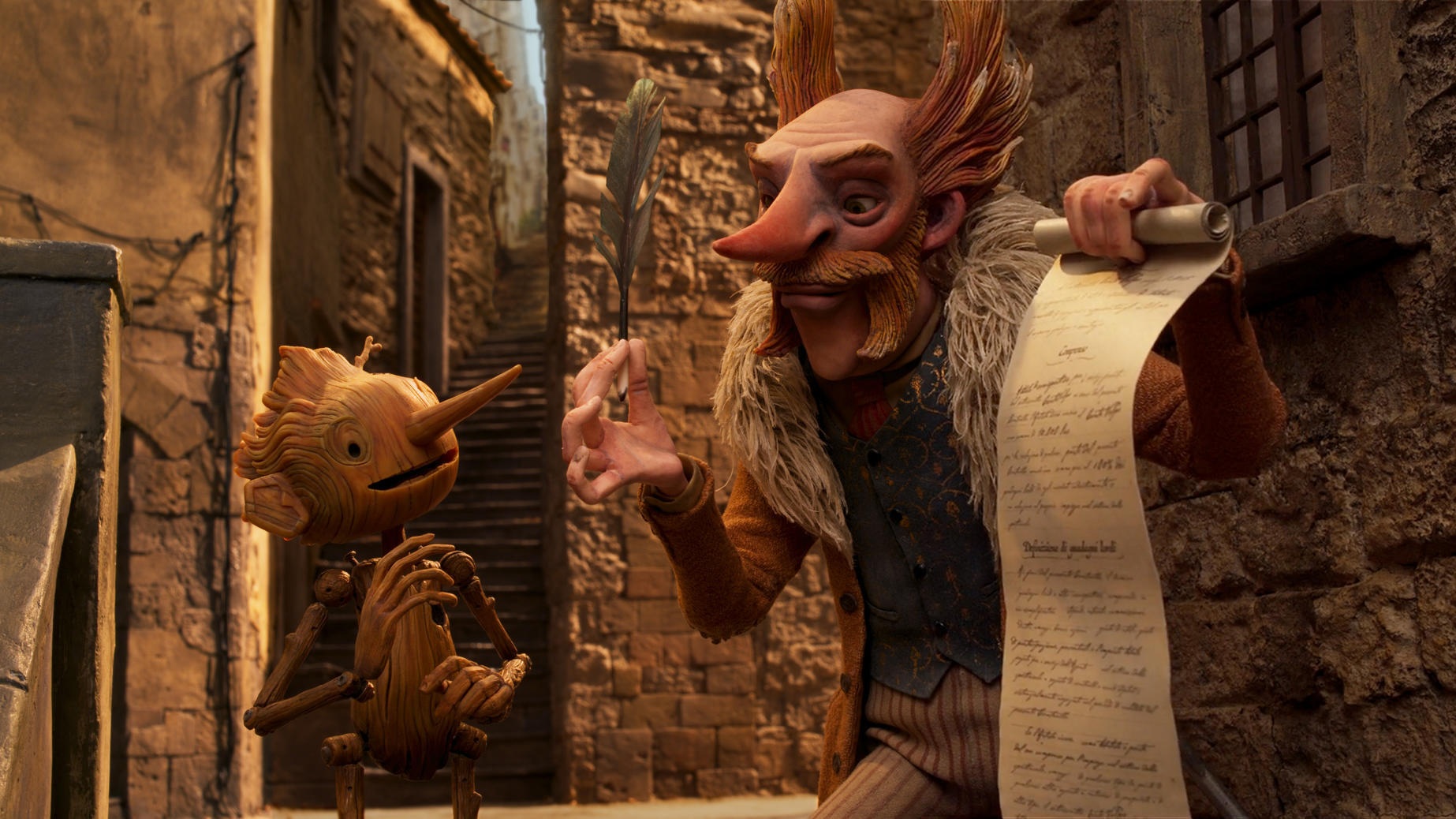Carlo Collodi’s The Adventures of Pinocchio is widely understood as an easily accessible coming-of-age metaphor—peeling back our childlike wonderment at the world to expose the nastiness within, an experience that leads to us gaining our collective humanity. It’s a broad-enough allegory to ensure Pinocchio can successfully be reimagined any way—a belief furthered by director Guillermo Del Toro, who recently hailed the character as one of the most “universal” in fiction. The tale of the wooden boy works equally well if redefined to fit a specific social or cultural critique as it does a straightforward retelling of the fantastical bildungsroman, though few filmmakers are taking advantage of the myriad possibilities which come with telling a story ripe for reimagining in rich new contexts. In recent years, everybody from Matteo Garrone to Robert Zemeckis has tried their hand at Pinocchio, the latter’s Disney adaptation being the most blatant example of a director unable to embrace sheer potential of this material: his lazy retread of classic animation only succeeded in making audiences suspect it’s impossible to find anything new in this century-and-a-half-old tale.
Guillermo Del Toro and Mark Gustafson’s stop-motion adaptation, premiering a little over a month after the Zemeckis take kicked up a stink on streaming, might be the finest Pinocchio to have ever graced our screens, largely because it refuses to stay reverential to the material even if it is inherently inspired by and indebted to it. All of Del Toro’s films are personal, but this might be the one closest to him in his entire back catalogue: a tale of new life transformed into one overwhelmed and overshadowed by grief that entered development following the death of his father in 2018, an event which seems to have drastically reshaped the long-gestating passion project he’s had in the works since 2008. Here we’re introduced to Geppetto (David Bradley) in flashback, where we witness his young son lose his life in a tragic wartime accident, an act that fills him with a loss even the arrival of a magical wooden boy can’t fix.
When the miracle of Pinocchio (voiced by newcomer Gregory Mann) comes to life, Geppetto’s reaction is one of immediate fear, the magical intervention to give him a new son only deepening his realization that he will never get his own flesh and blood back. The story itself has jumped forward to the Mussolini-ruled Italy of the 1930s, where any sentient being who doesn’t follow the strict rules laid out by society could find themselves quickly disposed of. You don’t come to Del Toro for subtlety, and he very much makes it apparent this literal puppet is the only figure who isn’t blindly obeying orders of a fascist regime.
It’s a very blatant metaphor, but one where Pinocchio finds true inspiration, interpreting familiar story beats in a manner that makes it feel like the final part of a trilogy that began with The Devil’s Backbone and Pan’s Labyrinth, two other tales about children contending with the evils of fascism. Just as he’s found a fresh perspective with which to tell this fairytale, Del Toro similarly refuses to repeat the same exact themes as those earlier works, even if this is, at its core, another study of a young character who manages to stay independent of mind and spirit when forced into the inner workings of a tyrannical regime.
Pan’s Labyrinth is the work Pinocchio best complements. Ofelia, the fairytale-obsessed lead of that 2006 film, uses tales of the mystical and magical as a means of escapism from an abusive family home; here, the welcoming of fantasy into the lives of Geppetto and the other residents in their small town doesn’t equate to a means of escape for anybody. The mystical being is treated with an immediate distrust because he disrupts their order, and it takes him being used as a tool for propaganda for him to be treated like a “real Italian boy.” If it all makes for one of the darkest screen adaptations of this story we’ve yet seen, it never becomes a bleak one; Del Toro and Gustafson are clearly as indebted to the Disney animation as they are the original novel, and have great fun staging tongue-in-cheek musical sequences paying tribute to and parody that work in equal measure—Pinocchio’s introductory number is not entirely unlike if Frankenstein’s Monster burst into song after being brought to life, and is regarded with the same horror by his surrogate father figure. The pair’s take is every bit as playful in its execution as it is unsettling.
Despite such gloom, the story still advances in the same emotional direction as Collodi’s, with Pinocchio and Geppetto finally bonding as their loving father-son relationship develops. Del Toro has said that one of his main motivations making this film was to tell a story about “disobedience as a virtue,” a recurring theme in a filmography that regularly centers those in direct conflict with authoritarian regimes, but it’s the central parent-child relationship that proves most affecting. The third act puts a unique spin on Pinocchio becoming a “real boy,” making for the most existential take on this material we’ve yet seen. Watched in the aftermath of Del Toro losing his mother, who died the day prior to Pinocchio‘s London Film Festival premiere (he dedicated it to her memory), the gentle way it examines children outliving their parents becomes even more powerful.
Several directors have told the tale of Pinocchio over the years, but none have been anywhere near as successful in reimagining it to fit their own sensibilities. Del Toro putting his own name in the title isn’t a move motivated by ego—nobody else could have made it but him.
Guillermo del Toro’s Pinocchio premiered at BFI London Film Festival and will arrive in theaters in November and on Netflix on December 9.

